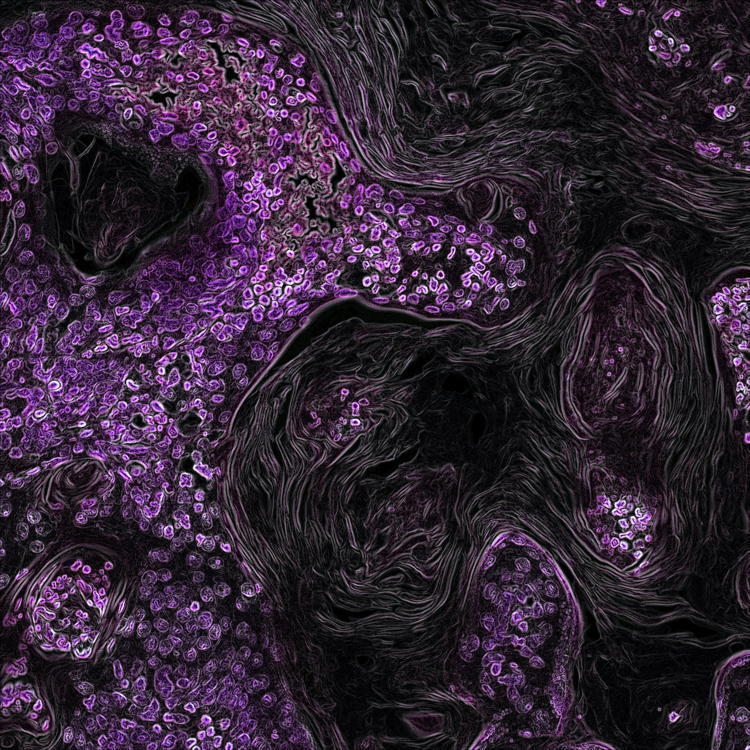Astragaloside IV augments anti-PD-1 therapy to suppress tumor growth in lung cancer by remodeling the tumor microenvironment

Submitted: 30 June 2024
Accepted: 22 August 2024
Published: 23 October 2024
Accepted: 22 August 2024
Abstract Views: 383
PDF: 83
HTML: 0
HTML: 0
Publisher's note
All claims expressed in this article are solely those of the authors and do not necessarily represent those of their affiliated organizations, or those of the publisher, the editors and the reviewers. Any product that may be evaluated in this article or claim that may be made by its manufacturer is not guaranteed or endorsed by the publisher.
All claims expressed in this article are solely those of the authors and do not necessarily represent those of their affiliated organizations, or those of the publisher, the editors and the reviewers. Any product that may be evaluated in this article or claim that may be made by its manufacturer is not guaranteed or endorsed by the publisher.
Similar Articles
- A Alunni, S Vaccari, S Torcia, Characterization of glial fibrillary acidic protein and astroglial architecture in the brain of a continuously growing fish, the rainbow trout , European Journal of Histochemistry: Vol. 49 No. 2 (2005)
- C Evangelisti, R Bortul, G Tabellini, V Papa, L Cocco, AM Martelli, Nuclear expression of diacylglycerol kinases: possible involvement in DNA replication , European Journal of Histochemistry: Vol. 50 No. 1 (2006)
- V Barresi, E Vitarelli, M Grosso, G Tuccari, G Barresi, Relationship between immunoexpression of mucin peptide cores MUC1 and MUC2 and Lauren’s histologic subtypes of gastric carcinomas , European Journal of Histochemistry: Vol. 50 No. 4 (2006)
- M Kotula-Balak, A Hejmej, J Sadowska, B Bilinska, Connexin 43 expression in human and mouse testes with impaired spermatogenesis , European Journal of Histochemistry: Vol. 51 No. 4 (2007)
- M. Relucenti, R. Heyn, L. Petruzziello, G. Pugliese, M. Taurino, G. Familiari, Detecting microcalcifications in atherosclerotic plaques by a simple trichromic staining method for epoxy embedded carotid endarterectomies , European Journal of Histochemistry: Vol. 54 No. 3 (2010)
- V. V. Philimonenko, J. Janácek, P. Hozák, LR White is preferable to Unicryl for immunogold detection of fixationsensitive nuclear antigens , European Journal of Histochemistry: Vol. 46 No. 4 (2002)
- Manuela Monti, microRNAs in development - Methods and protocols , European Journal of Histochemistry: Vol. 55 No. 4 (2011)
- RG Steinbeck, Dysplasia in view of the cell cycle , European Journal of Histochemistry: Vol. 48 No. 3 (2004)
- G Tuccari, G Giuffrè, R Scarfì, A Simone, P Todaro, G Barresi, Immunolocalization of lactoferrin in surgically resected pigmented skin lesions , European Journal of Histochemistry: Vol. 49 No. 1 (2005)
- A Zulli, LM Burrell, BF Buxton, DL Hare, ACE2 and AT4R are present in diseased human blood vessels , European Journal of Histochemistry: Vol. 52 No. 1 (2008)
<< < 67 68 69 70 71 72 73 74 75 76 > >>
You may also start an advanced similarity search for this article.

 https://doi.org/10.4081/ejh.2024.4098
https://doi.org/10.4081/ejh.2024.4098










